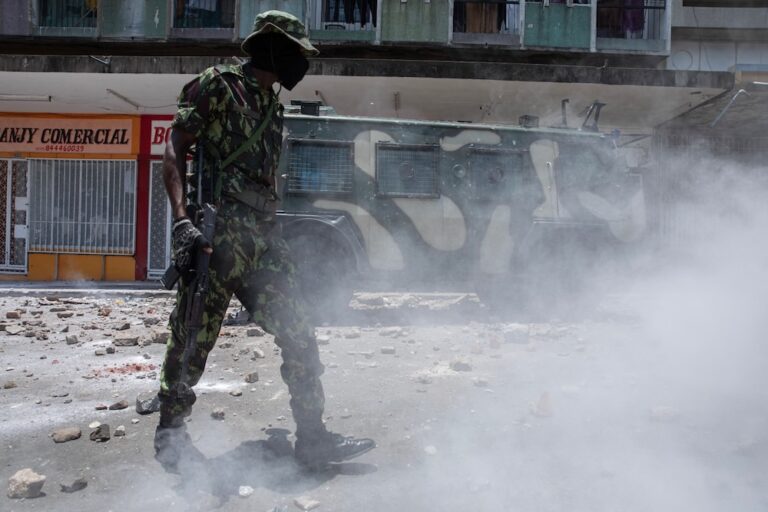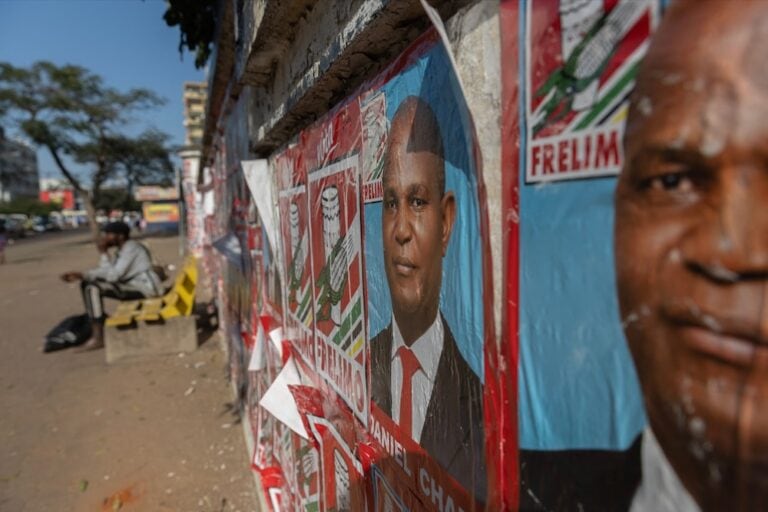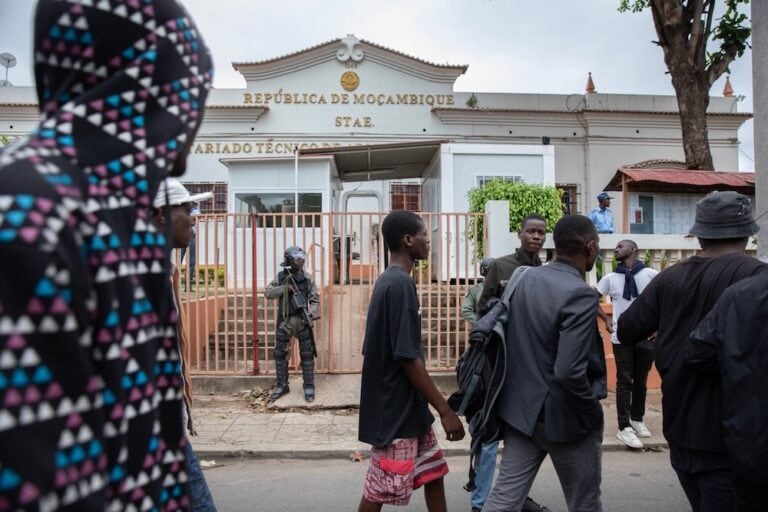(MISA/IFEX) – The Mozambican government “firmly and vehemently condemns all acts that attack press freedom,” declared Deputy Education Minister Luis Covane on 12 March 2009, Mozambique’s news agency AIM reports. Covane was representing the government at the launch of the “Annual Report on the State of Press Freedom in Mozambique”, produced by MISA’s Mozambican chapter. […]
(MISA/IFEX) – The Mozambican government “firmly and vehemently condemns all acts that attack press freedom,” declared Deputy Education Minister Luis Covane on 12 March 2009, Mozambique’s news agency AIM reports.
Covane was representing the government at the launch of the “Annual Report on the State of Press Freedom in Mozambique”, produced by MISA’s Mozambican chapter.
He admitted that, as documented in the report (covering the year 2007), there had been cases in which state agents had acted against freedom of the press, but this was not government policy. “We have long said, and we restate it today, that the media are our partners in the struggle we are waging against poverty,” stressed Covane.
The government, he added, was open to all activities that would improve “the pluralism, diversity and independence of the Mozambican press”.
The government regarded MISA-Mozambique as “a strategic partner in all activities seeking to improve the media environment in the country”. He noted that MISA officials have been involved in two working groups set up by the government – one to redraft the 1991 press law and one to draft a future law on broadcasting.
At the ceremony, MISA also distributed a brochure summarising research into the right to information in 33 rural districts. This makes for disturbing reading, since it shows that the right to information is scarcely known or understood outside of the cities.
MISA-Mozambique programme officer Ericino de Salema said the research concluded that “there is a manifestly low level of knowledge among citizens in the districts about the context and relevance of the right to information, as a fundamental right”. This was the case even among civil servants, teachers, students and other literate groups.
Worse still, civil servants, and even some teachers, wanted to restrict the right to information, and argued in favour of limitations on access to information held by public bodies.
MISA believed this showed the need for campaigns in the districts to publicise the constitutionally enshrined right to information and how it was important for exercising citizenship rights and for monitoring the work of the government.
Salema also lamented the clause in the 2007 law on court organisation which prohibits the presence of microphones and cameras during trials (apart from the initial reading of the charge sheet and the final delivery of the sentence).
He pointed out that the Mozambican parliament, the Assembly of the Republic, had tagged this prohibition onto a largely uncontroversial law about how courts are to be organised, thus interfering in judges’ right to decide on radio and television coverage on a case-by-case basis.
In this clause, the Assembly expressed “the reaction of the most conservative sectors of our society”, who had opposed the live broadcast of the trial, in 2002-2003, of the six men found guilty of murdering the country’s foremost investigative journalist, Carlos Cardoso.
MISA believed there was a generally favourable legal framework for press freedom and the right to information, but all too often officials in small towns and rural districts ignored the legal rights of journalists and the media.


